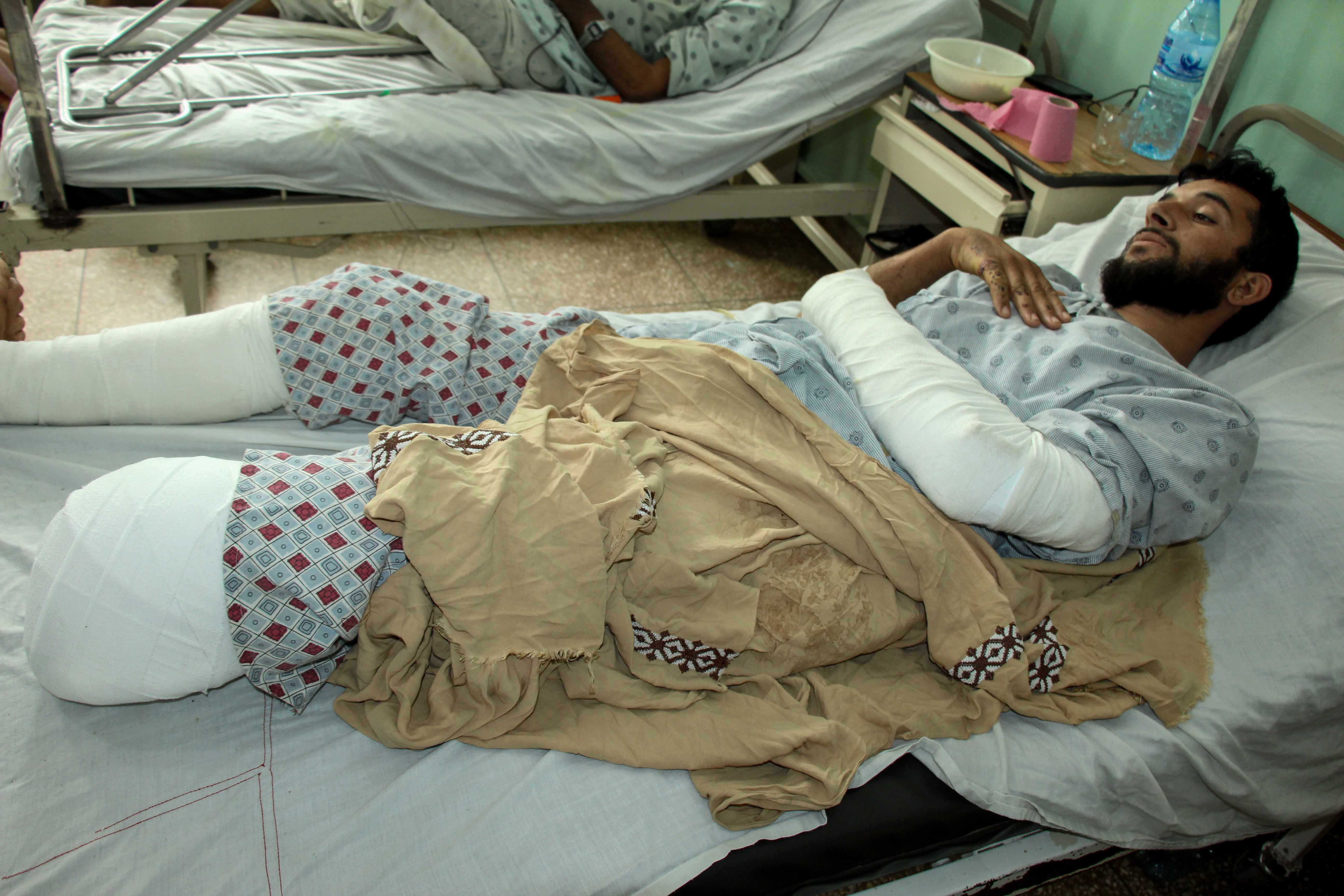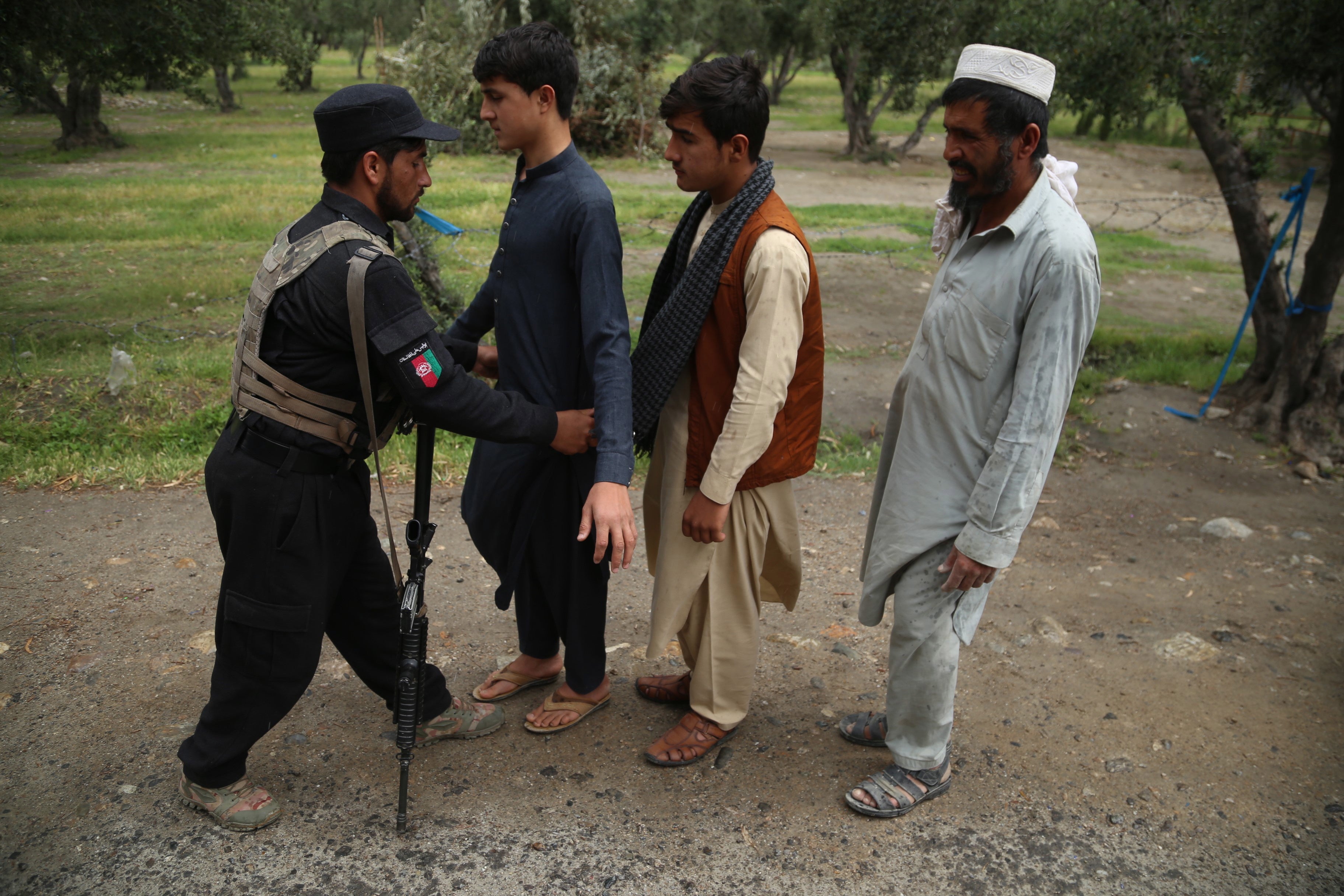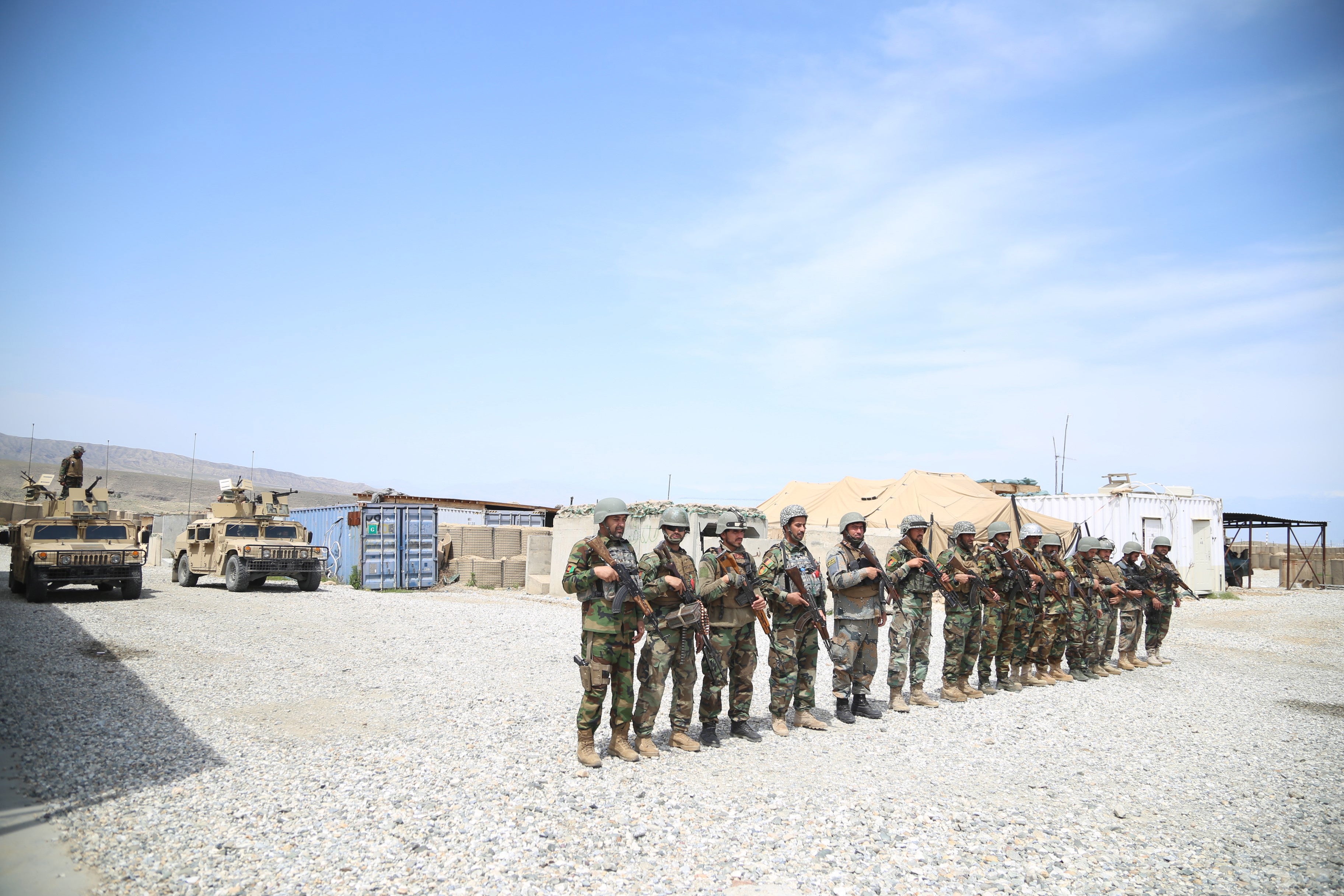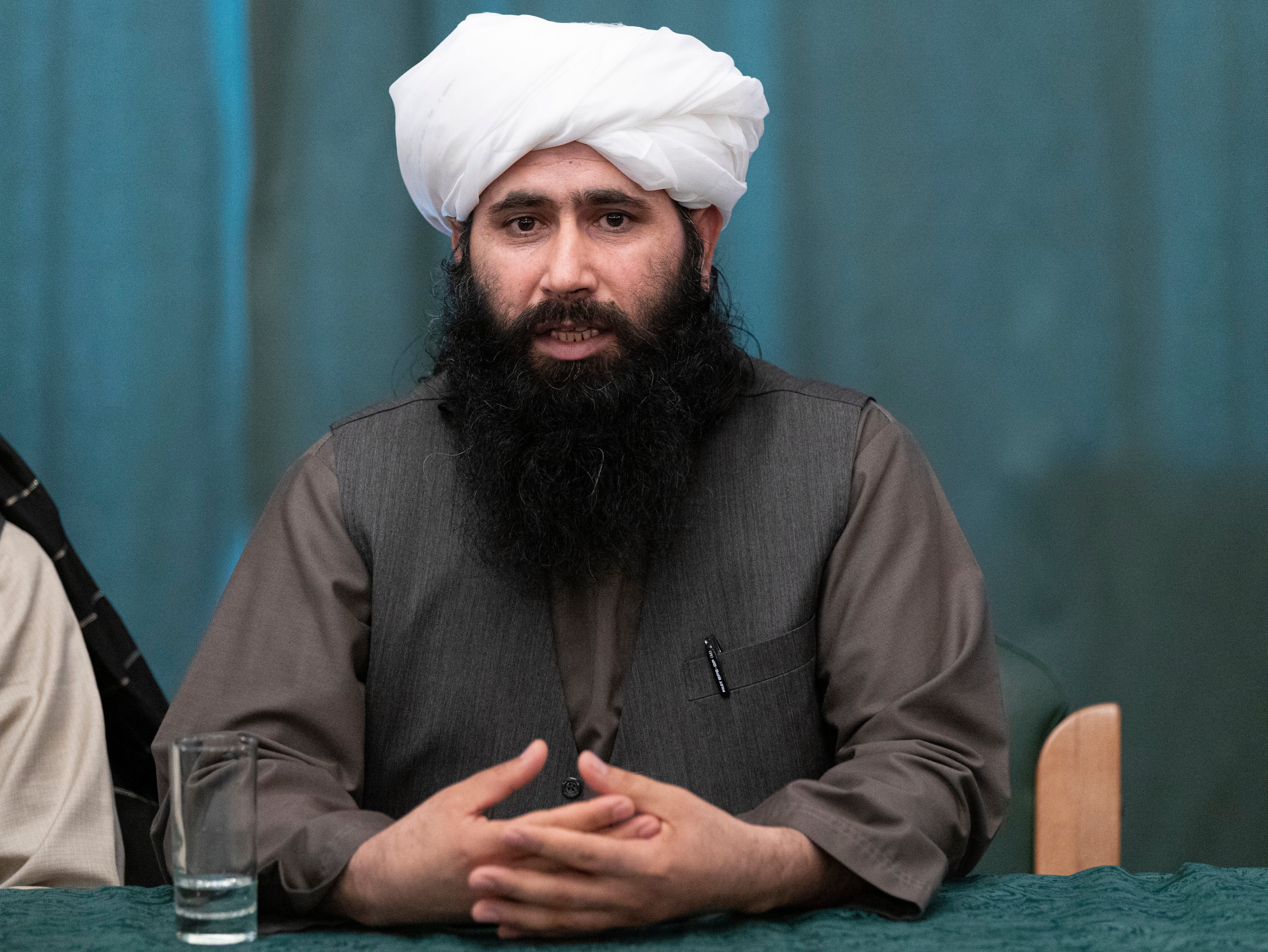US exit from Afghanistan before peace is in place is causing alarm on the ground
Violence in Afghanistan has spiked recently, writes Borzou Daragahi, with civilians paying a heavy price


Your support helps us to tell the story
From reproductive rights to climate change to Big Tech, The Independent is on the ground when the story is developing. Whether it's investigating the financials of Elon Musk's pro-Trump PAC or producing our latest documentary, 'The A Word', which shines a light on the American women fighting for reproductive rights, we know how important it is to parse out the facts from the messaging.
At such a critical moment in US history, we need reporters on the ground. Your donation allows us to keep sending journalists to speak to both sides of the story.
The Independent is trusted by Americans across the entire political spectrum. And unlike many other quality news outlets, we choose not to lock Americans out of our reporting and analysis with paywalls. We believe quality journalism should be available to everyone, paid for by those who can afford it.
Your support makes all the difference.The decision by the United States to withdraw troops from Afghanistan comes before any peace has been established for the country. Civilians are being killed and injured by the ongoing war at an alarming rate, and prospects for a deal between the country’s warring parties are dim.
President Joe Biden announced solemnly on Wednesday that the US would withdraw all of its troops from the mountainous, war-torn country after nearly 20 years by 11 September, ending America’s longest war.
“With the terror threat now in many places, keeping thousands of troops grounded and concentrated in just one country at a cost of billions each year makes no sense to me, and our leaders,” he said in a national speech.
“We cannot continue the cycle of extending or expanding our military presence in Afghanistan, hoping to create ideal conditions for the draw and expecting a different result.”
The withdrawal announcement adds pressure on the Afghan government, and to a lesser extent the Taliban rebels fighting it, to come up with a viable peace agreement.
But on the ground in Afghanistan, the country appears to be sliding deeper into war, and Istanbul peace talks scheduled for this week have been delayed. Some Afghans are worried, even if they acknowledge that the presence of foreign troops may not wind up making a difference in bringing about peace.

“The withdrawal of these forces is a desire of the Afghan people, but at the moment, the conditions have not been made for this to happen,” Afghan parliamentary speaker Mir-Rahman Rahmani was quoted as saying by Tolo News TV. “There is a possibility of the return of civil war, and this will change Afghanistan into a hub of international terrorism.”
Shortly after Mr Biden’s announcement, Taliban rebels attacked an Afghan army base in the southern province of Zabul, with clashes continuing until early Thursday, Tolo reported. At least 10 members of the US-trained Afghan security forces were killed.
The attack, along with others throughout the day, came despite a plea by Afghan president Ashraf Ghani for a Ramadan ceasefire, which the Taliban have rejected. Instead Taliban officials have warned that their fighters would attack all foreign forces inside Afghanistan from 1 May, the date former president Donald Trump had set as the deadline for a troop withdrawal.
Afghans are desperate for peace, but worry that the complicated conflict in the country could worsen, whether or not the US leaves.

In recent months the country has become more unsafe. According to a United Nations report released on Wednesday, 1,783 Afghan civilians were killed or wounded in the first three months of 2021, up 29 per cent from the same period last year. Since the start of intra-Afghan peace talks six months ago, civilian casualties have spiked 38 per cent, according to the UN.
On 6 April, four civilians were killed and 13 injured by a roadside bomb which struck a bus along the highway between Kandahar and Herat provinces. A day later, a woman and a child were wounded by a rocket in Kandahar city, and two civilians were killed and 27 were injured by roadside blasts in Jalalabad city, according to a UN summary.
“The number of Afghan civilians killed and maimed, especially women and children, is deeply disturbing,” Deborah Lyons, the UN secretary-general’s special envoy for Afghanistan, said in a 14 April statement. “I implore the parties to urgently find a way to stop this violence.”
Some worry that a US withdrawal would only exacerbate the violence. Parviz Ahmadi, a resident of Herat quoted by Pajhwok News, recalled that after Soviet troops withdrew from the country in the late 1980s, the country’s troubles only worsened.
“Thousands of Afghans and Afghans were killed, the military strength and dignity of the Afghans was destroyed,” he was quoted as saying.
“The irresponsible departure of the United States will lead to a house of war,” said Mohammad Alam Elmi, a resident of Baghlan province, quoted in the same report. “This departure is irresponsible, dishonourable.”
The irresponsible departure of the United States will lead to a house of war
Afghanistan’s miseries are multiplying. Already one of the poorest nations in the world, companies and potential investors have begun to flee in anticipation of the US withdrawal.
In addition to the violence, authorities are struggling to contain an ongoing outbreak of measles, as well as dealing with the fallout of the coronavirus pandemic.
A peace deal seems far off. The Afghan government has prepared a draft peace plan that has not even been fully endorsed by the government in Kabul, much less the Taliban. It is to be presented at a summit in the Turkish commercial capital of Istanbul later this month, but the Kabul government has not even agreed yet on who will represent Afghanistan at the summit.
The Taliban have also yet to offer up their own peace plan, even as they claim to be working on one, and many Afghans fear they are preparing to overrun the nation again once the US withdraws, just as they did in the late 1990s. Their demands have included the resignation of the Ghani government, which the Taliban consider a US puppet, and the establishment of an “Islamic system”.
Afghanistan is already one of the most religiously observant nations in the Muslim world, officially known as the Islamic Republic of Afghanistan.
“All institutions, parties, and political activists are in favour of peace with the Taliban and ending the conflict in the country through dialogue,” said a commentary in the Afghan newspaper Hasht-e-Sobh. “But a lasting and just peace is not on the Taliban’s agenda and this group is thinking more about the military option to seize full power.”
Turkey’s foreign minister Mevlut Cavusoglu said on Thursday that delayed peace talks in Istanbul would take place on 24 April, even though the Taliban has indicated that it will not participate in “any conference” until all international troops leave Afghanistan.
The talks are being hosted by Turkey, the United Nations and Qatar, which frequently serves as an intermediary to the Taliban, a collection of armed groups rooted in Afghanistan’s ethnic Pashtun plurality that has been fighting the Kabul government for years.
The United Kingdom, Germany, France and other Nato allies have announced that they would coordinate their own withdrawals from Afghanistan with Washington.

Though civilian casualties caused by US and other Nato nations’ airstrikes make headlines, the Taliban and the local branch of Isis are responsible for 61 per cent of civilian casualties in the country, while pro-government forces are responsible for roughly 27 per cent. The occasionally surging presence of Isis in Afghanistan, which fights against both the government and Taliban has complicated any peace calculations.
“The withdrawal will leave no US counterterrorism capability on the ground, increasing US reliance on Afghan partners to handle emerging threats,” said a note issued on Thursday by the Soufan Group, a security consultancy founded by former FBI agent Ali Soufan, who spent years hunting al-Qaeda.
“In addition to the potential for a resurgence of al-Qaeda in Afghanistan, the Islamic State Khorasan Province is also active along the Afghanistan-Pakistan border and may seek to exploit the uncertainty and security gaps left by the withdrawal.”
Join our commenting forum
Join thought-provoking conversations, follow other Independent readers and see their replies
Comments